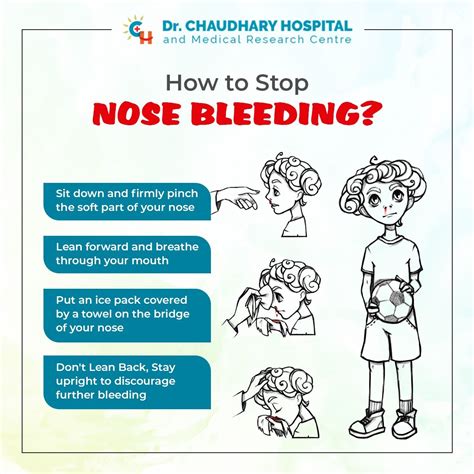Intro
Learn 5 effective ways to stop nosebleeds instantly, including home remedies, first aid techniques, and prevention methods to manage nasal bleeding, epistaxis, and hemorrhage symptoms.
Nosebleeds, also known as epistaxis, are a common condition that can occur in anyone, regardless of age or health status. They can be caused by a variety of factors, including dry air, allergies, colds, and injuries to the nose. While nosebleeds can be alarming, they are usually not a cause for concern and can be treated with simple home remedies. In this article, we will explore the importance of knowing how to stop nosebleeds and provide tips on how to prevent them from happening in the first place.
Nosebleeds can be a nuisance, especially if they occur frequently. They can disrupt daily activities, cause anxiety, and even lead to more serious health complications if left untreated. Furthermore, nosebleeds can be a sign of an underlying health issue, such as high blood pressure, a bleeding disorder, or a tumor. Therefore, it is essential to know how to stop nosebleeds and when to seek medical attention.
Knowing how to stop nosebleeds is crucial, especially for individuals who experience frequent or severe nosebleeds. In addition to the physical discomfort and emotional distress caused by nosebleeds, they can also lead to more serious health complications, such as anemia, if left untreated. Moreover, nosebleeds can be a sign of an underlying health issue, making it essential to seek medical attention if they occur frequently or are severe. By learning how to stop nosebleeds and taking preventive measures, individuals can reduce their risk of developing more serious health complications and improve their overall quality of life.
Understanding Nosebleeds

Causes of Nosebleeds
Nosebleeds can be caused by a variety of factors, including: * Dry air * Allergies * Colds * Injuries to the nose * High blood pressure * Bleeding disorders * Tumors * Medications, such as blood thinners * Nasal sprays or drops5 Ways to Stop Nosebleeds

Preventing Nosebleeds
Preventing nosebleeds is essential to reduce the risk of developing more serious health complications. Here are some tips to prevent nosebleeds: * Use a humidifier to add moisture to the air * Avoid picking or blowing the nose * Avoid using nasal sprays or drops that contain harsh chemicals * Wear protective gear, such as a helmet or mask, when engaging in activities that may cause injury to the nose * Manage allergies and colds with medication and self-careTreatment Options for Frequent Nosebleeds

When to Seek Medical Attention
It is essential to seek medical attention if: * The nosebleed is severe or lasts for more than 20 minutes * The nosebleed is accompanied by other symptoms, such as dizziness, difficulty breathing, or chest pain * The nosebleed occurs frequently or is recurrent * The individual has a history of bleeding disorders or is taking medications that may increase the risk of bleedingConclusion and Next Steps

We invite you to share your thoughts and experiences with nosebleeds in the comments section below. Have you ever had a nosebleed? What did you do to stop it? Do you have any tips or advice for managing nosebleeds? Share your story with us, and let's work together to raise awareness about the importance of knowing how to stop nosebleeds.
What are the most common causes of nosebleeds?
+Nosebleeds can be caused by a variety of factors, including dry air, allergies, colds, injuries to the nose, high blood pressure, bleeding disorders, and tumors.
How can I prevent nosebleeds?
+To prevent nosebleeds, use a humidifier to add moisture to the air, avoid picking or blowing the nose, and avoid using nasal sprays or drops that contain harsh chemicals.
When should I seek medical attention for a nosebleed?
+Seek medical attention if the nosebleed is severe, lasts for more than 20 minutes, or is accompanied by other symptoms, such as dizziness, difficulty breathing, or chest pain.
